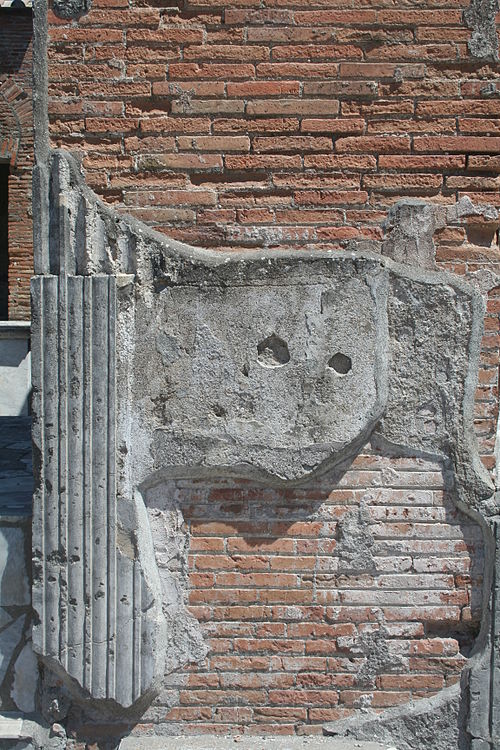Poulticenoun
A soft, moist mass applied topically to a sore, aching or lesioned part of the body to soothe. A poultice is usually wrapped in cloth and often warmed before being applied.
Poulticeverb
(transitive) To treat with a poultice.
Poulticenoun
A soft composition, as of bread, bran, or a mucilaginous substance, to be applied to sores, inflamed parts of the body, etc.; a cataplasm.
Poulticeverb
To apply a poultice to; to dress with a poultice.
Poulticenoun
a medical dressing consisting of a soft heated mass of meal or clay that is spread on a cloth and applied to the skin to treat inflamed areas or improve circulation etc.
Poulticeverb
dress by covering with a therapeutic substance
Poultice
A poultice, also called a cataplasm, is a soft moist mass, often heated and medicated, that is spread on cloth and placed over the skin to treat an aching, inflamed or painful part of the body. It can be used on wounds such as cuts.
Plasternoun
(uncountable) A paste applied to the skin for healing or cosmetic purposes.
Plasternoun
A small adhesive bandage to cover a minor wound; a sticking plaster.
Plasternoun
(uncountable) A mixture of lime or gypsum, sand, and water, sometimes with the addition of fibres, that hardens to a smooth solid and is used for coating walls and ceilings; render, stucco.
Plasternoun
(countable) A cast made of plaster of Paris and gauze; plaster cast.
Plasternoun
(uncountable) plaster of Paris.
Plasterverb
(transitive) To cover or coat something with plaster; to render.
Plasterverb
(transitive) To apply a plaster to.
Plasterverb
(transitive) To smear with some viscous or liquid substance.
Plasterverb
(transitive) To hide or cover up, as if with plaster; to cover thickly.
Plasterverb
To smooth over.
Plasternoun
An external application of a consistency harder than ointment, prepared for use by spreading it on linen, leather, silk, or other material. It is adhesive at the ordinary temperature of the body, and is used, according to its composition, to produce a medicinal effect, to bind parts together, etc.; as, a porous plaster; sticking plaster.
Plasternoun
A composition of lime, water, and sand, with or without hair as a bond, for coating walls, ceilings, and partitions of houses. See Mortar.
Plasternoun
Calcined gypsum, or plaster of Paris, especially when ground, as used for making ornaments, figures, moldings, etc.; or calcined gypsum used as a fertilizer.
Plasterverb
To cover with a plaster, as a wound or sore.
Plasterverb
To overlay or cover with plaster, as the ceilings and walls of a house.
Plasterverb
Fig.: To smooth over; to cover or conceal the defects of; to hide, as with a covering of plaster.
Plasternoun
a mixture of lime or gypsum with sand and water; hardens into a smooth solid; used to cover walls and ceilings
Plasternoun
any of several gypsum cements; a white powder (a form of calcium sulphate) that forms a paste when mixed with water and hardens into a solid; used in making molds and sculptures and casts for broken limbs
Plasternoun
a medical dressing consisting of a soft heated mass of meal or clay that is spread on a cloth and applied to the skin to treat inflamed areas or improve circulation etc.
Plasternoun
a hardened surface of plaster (as on a wall or ceiling);
Plasternoun
adhesive tape used in dressing wounds
Plasterverb
cover conspicuously, as by pasting something on;
Plasterverb
affix conspicuously;
Plasterverb
apply a plaster cast to;
Plasterverb
apply a heavy coat to
Plasterverb
coat with plaster;
Plasterverb
dress by covering with a therapeutic substance
Plaster
Plaster is a building material used for the protective or decorative coating of walls and ceilings and for moulding and casting decorative elements. In English, usually means a material used for the interiors of buildings, while commonly refers to external applications.




















